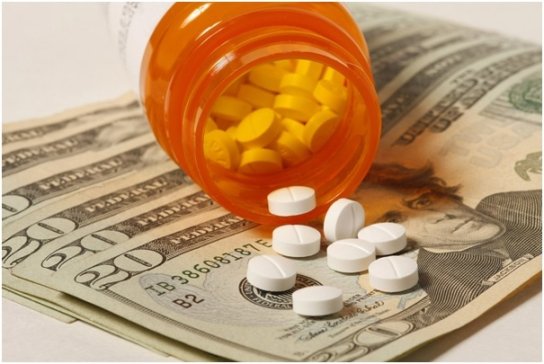There was a time not long ago when a briefcase full of prescription drugs cost about $10 for a month’s worth. Today, some Americans are paying a fee closer to $200 for that same amount of medication.
How did we get to a point where a drug that costs a few dollars is now costing a few hundred or more? Good meds are expensive because they’re so good, right? Is that the whole truth?
Take a look at some of the factors that currently affect drug costs and what that means for patients and their healthcare providers. Let’s get into it!

Table of Contents
Drug Development Costs are High
Prescription drug costs have been rising exponentially. The main culprit is the high cost of drug development due to:
- extensive regulatory requirements
- clinical trials
- research to make a drug commercially available
Companies need to recoup these costs, often resulting in high prices for drugs. Additionally, pharmaceutical companies can suffer catastrophic losses if an experimental drug fails clinical trials and cannot receive FDA approval.
However, it is best to look for solutions to find Eliquis discounts and other meds to help individuals access these medications. Utilizing these can help give people access to good meds without spending an exorbitant amount of money.
Advertising Expenses Drive Prices Up
Companies are spending billions of dollars each year on promoting their drugs. They advertise this as the best and only choice for the treatment of certain conditions.
They also need to convince physicians to prescribe their medications and to influence patients to ask for a specific drug. While many argue that this is essential to educate the public, it is largely benefiting companies at the cost of the consumer.
This is the reason why it drives up prices due to their efforts to sell more medicines.
Drug Patents Enable Companies to Hold Onto High Drug Prices
Drug patents enable companies to maintain their pricing for some time. They are conferring them with exclusive rights as well as protecting profits from competition. This allows them to maintain high drug prices, often for years.
Additionally, this can have serious consequences for health outcomes and access to critical medicines. It can limit innovation and can stifle access to cheaper, generic medicines.
This has become a global issue with no easy solution and continues to be a significant factor in hospital spending and costs for individuals.
The Cost of Healthcare System Plays a Role in Regulating Drug Prices
The cost of the healthcare system plays a role in regulating drug prices. The high cost of medicines is often linked to rising healthcare costs such as:
- hospital stays
- doctor consultations
- tests
- therapies
To remain profitable, insurance companies can negotiate high prices for drugs with companies that they cover. However, they decide to only cover those that are most cost-efficient for them.
This means that the supply and prices of medications can fluctuate due to the system. Ultimately, the cost of good medications can and will remain expensive due to the nature of the healthcare system.
Top Reasons Why Good Meds are So Expensive
Although it is alluring to find cheaper options, it is important to remember that it is up to consumers to be informed. Know what drugs you need and why they are priced as such.
Don’t forget to educate yourself and ask questions, as this will help you make more informed decisions about these costly good meds. For more information, be sure to reach out to your local healthcare provider today!
Did you find this article helpful? Check out the rest of our blog now!




